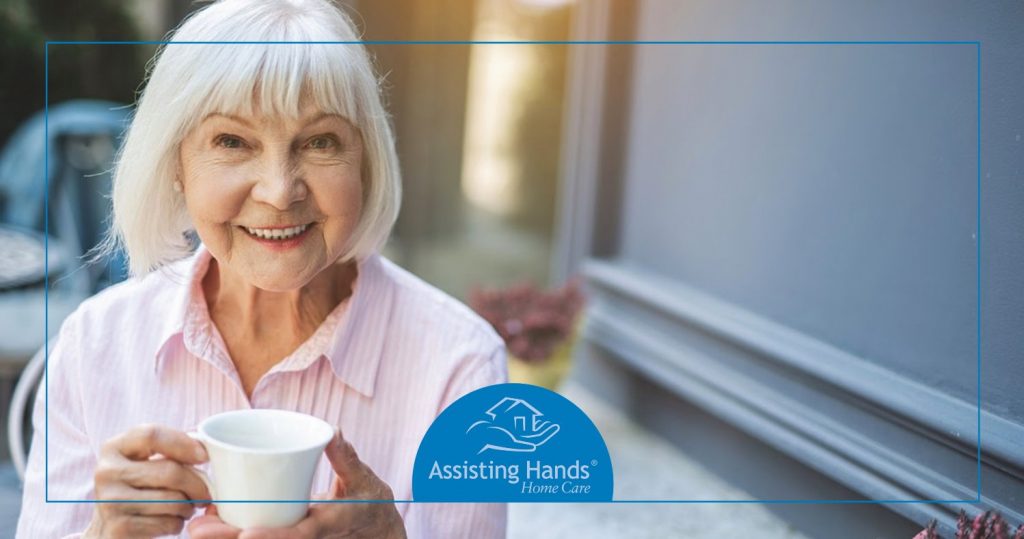
As winter approaches, it is time to start preparing for the upcoming cold weather. Winter conditions such as ice, snow, and below freezing temperatures are hazardous for people of all ages if the proper precautions are not taken. However, seniors are especially vulnerable to injuries and health issues once the winter weather arrives.
The main reason seniors are more affected by the cold weather is because their bodies lose heat faster than those who are younger. This makes them more vulnerable to conditions like frostbite and hypothermia. According to the Centers for Disease Control and Prevention (CDC), around 85 percent of seniors in the U.S. have at least one chronic condition that increases the risk of health effects from the cold weather. There is also a higher risk of injuries among seniors in the winter as they are more likely to slip and fall on ice and snow.
In this guide, we will discuss the risks that cold winter weather poses for seniors as well as safety tips to help prevent your senior loved ones from suffering a fall or health condition. Families and caregivers are advised to be aware of the potential hazards that seniors in their care face and follow these safety tips to ensure their safety.
What Heath Issues are Caused by Cold Weather?
Cold temperatures and snowy or icy conditions put older adults at high risk of health issues and injuries during the winter. Seniors are at risk for hypothermia or frostbite if they do not dress warm enough for the weather or are out in the cold for too long. Slippery driveways and sidewalks can result in falls that lead to serious injuries.
The following are the main health issues and risks for seniors during the winter:
1. Falls
Icy, snowy conditions are hazardous to seniors, since they can slip and fall. During the winter months, falls on the ice are common among the older population. Falls can lead to a range of significant injuries, such as wrist fractures, head trauma, hip fractures, and major lacerations.
Seniors must move with caution when outside in slippery conditions and look for ice and snow in front of them on the sidewalk or driveway. They should also avoid physical activity outside such as shoveling which can increase the risk of falls.
2. Hypothermia
Hypothermia is a condition that occurs when the body temperature drops below 95 degrees. Seniors are at high risk of hypothermia because they lose body heat at a rapid rate if they are not dressed warm enough or are out in the cold for extended periods. Hypothermia can lead to serious issues such as irregular heartbeat and organ damage.
It is important to recognize the warning signs of hypothermia so you can get help for seniors who are affected:
- Pale skin
- Cold hands and feet
- Shivering or shaking
- Swollen or puffy face
- Slow or slurred speech
- Feelings of anger, fatigue, or confusion
If a senior loved one shows signs of hypothermia, call 911 and take them to a warm environment right away to help them warm up.
3. Frostbite
Frostbite is a condition that occurs when damage to the skin from cold conditions reaches the bone. This occurs due to direct exposure to the cold and is more likely to occur when seniors spend an excessive amount of time outside in cold weather without the proper clothing. Body parts farthest from the heart, such as the nose, cheeks, ears, chin, and extremities like fingers and toes, are most likely to be affected by frostbite. Severe frostbite can even lead to the loss of limbs.
Seniors who have heart disease and other circulation issues are more at risk of frostbite. It is important for seniors to cover all parts of their body when out in the cold and they should go inside when their exposed skin turns red. Signs of frostbite include numbness and white, ashy, or grayish yellow skin that is hard to the touch. If you or a loved one has frostbite, call for medical help and run the frostbitten area under warm water.
4. Injuries from Shoveling Snow
Shoveling snow is a strenuous activity that can be hazardous for seniors. Seniors who have heart disease should avoid shoveling because it can strain the heart. Those with balance issues or osteoporosis should also refrain from shoveling as they are at higher risk for falls and serious injuries.
Seniors who believe they are capable of shoveling should check with their doctor and make sure it is safe for them to shovel.
5. Car Accidents
Senior citizens already have a higher risk of being in a car accident than other age groups and winter conditions make driving even more dangerous for them. It is difficult for seniors to stay vigilant and control their vehicles when driving in snowy and icy conditions due to poor eyesight and slow reflexes.
6. Preexisting Conditions and Cold Weather
Preexisting medical conditions can increase the risk of further issues or injuries for seniors in the winter. You should take extra precautions if you have a senior loved one with any of the following conditions:
- Diabetes: Those with diabetes may have a harder time staying warm due to circulation issues caused by this condition.
- Thyroid issues: Problems with the thyroid affect the body’s ability to maintain the proper body temperature.
- Parkinson’s disease and arthritis: Seniors affected by these conditions may have difficulty putting on more layers or a blanket when they are cold or moving to a warmer place.
- Dementia or memory issues: Seniors with dementia or memory issues may forget to dress warm enough for the cold weather.
- Medications: Certain medications affect body temperature, including over the counter medications. If you or a loved one is affected by this, talk to the doctor for suggestions.
How Can Seniors Stay Safe in the Cold?
Seniors, as well as their loved ones and caregivers, should take every precaution necessary in the winter to prevent injuries and other health issues. Following these safety tips will help you keep your senior loved ones warm and safe in the cold.
1. Safety Tips to Prevent Falls
While falls can lead to serious injuries in the winter, they are also largely preventable. The following tips can help your senior loved ones prevent falls when outside in the winter:
- Seniors should watch where they are walking to make sure steps and walkways are clear of ice and snow. Exercises caution when walking on wet pavement.
- Snow should be shoveled from the driveway and sidewalks and these areas should be salted to prevent ice from forming. It may be best for seniors to hire someone to shovel or call a family member to do it.
- Seniors should wear nonskid, rubber-soled shoes or boots.
- Make sure railings on outdoor stairs are secure and encourage your senior loved ones to use them.
- Keep outdoor areas well lit.
- Seniors who use a cane should replace the rubber tip if it starts to wear and consider adding an ice pick or something similar to the end of the cane for traction.
The following tips can help seniors avoid falling when entering the home during the winter:
- Remove any clutter from the entryway and keep it clear through the winter.
- Put a table outside the door where seniors can place items while unlocking the door.
- Dry off walking aids such as canes, walkers, or wheelchairs before bringing them inside the home.
- If the main entrance gets icy during the winter, use a different entrance.
- Encourage your senior loved ones to stay inside during bad or icy weather.
2. Safety Tips to Prevent Hypothermia
Hypothermia is a dangerous condition that can have serious consequences for the elderly. It is very important to take every precaution you can to protect your senior loved ones from hypothermia:
- Encourage your senior loved ones to stay indoors when the temperature is below freezing. If they must go outside, make sure they are not outside for very long.
- Advise your loved ones to stay dry because wet clothing makes people colder much faster.
- Seniors should layer up to protect themselves from the cold. It is warmer to wear two or three layers of thinner clothing than one layer of thick clothing.
- Seniors should also wear the appropriate gear including hats, gloves, coats, boots, and scarves.
- Make sure to take your loved ones inside to a warmer environment at any sign of hypothermia and call for medical help.
Taking these steps to keep your senior loved ones warm in the home can also reduce the risk of hypothermia:
- Make sure the heat is set no lower than 68° F. Inside temperatures below 68° are low enough to put seniors at risk of hypothermia.
- Put towels or draft stoppers around doors and windows to keep cold air out.
- Encourage seniors to wear multiple layers of loose-fitting warm clothing.
- Keep blankets handy to provide extra warmth.
- Encourage seniors to drink warm liquids and eat hot meals.
- Seniors should move around the home to maintain body heat.
- Warm up cold feet and hands with heating pads.
3. Safety Tips to Prevent Frostbite
Seniors should cover up all parts of their bodies when outdoors to prevent frostbite. Monitor your loved ones for skin that turns red or dark or starts to hurt. When these signs of frostbite occur, bring them inside immediately and run warm (not hot) water over affected areas.
Additional warning signs of frostbite include skin that turns grayish-yellow or ashy and skin that feels hard or waxy to the touch. Numbness may occur in areas affected by frostbite. If you notice symptoms of frostbite in your senior loved ones, call for medical help right away.
4. Create an Emergency Plan for Severe Weather and Power Outages
Severe winter weather can limit access to healthcare services which puts seniors at risk for complications. Putting together an emergency plan with your senior loved ones can help ensure their safety:
- Put together a tool kit that includes supplies like blankets and warm clothing, first aid kit, non-perishable food and water, flashlight, copies of important documents, medications, etc.
- Sign up for weather alerts.
- Designate a friend or family member who lives nearby as an emergency contact and provide their contact information to your senior loved ones.
- Make sure someone has a key to your loved one’s home and knows where to find medications and emergency supplies.
It is possible for severe winter storms to cause power outages which can leave your senior loved ones without heat. Make sure your loved ones know to follow these steps to stay warm in case of a power outage:
- Generator safety: Generators can be used to keep the power going in case of an outage. However, gas powered generators must be kept outside in an open area while in use. Using a generator indoors is dangerous and could lead to carbon monoxide poisoning.
- Listen for updates: Make sure your loved ones have a battery-operated radio so they can listen for weather updates.
- Preserve heat: Help your loved ones preserve heat by closing blinds and curtains, closing rooms that are unused, and covering gaps under doors with towels or rags.
- Dress warm: Seniors should dress in multiple layers of loose-fitting, lightweight clothing which will keep them warmer than a single bulky layer of clothing.
- Eat and drink regularly: Eating food helps the body stay warm by providing energy and consuming warm drinks can help keep seniors warm.
5. Safety Tips for Winter Driving
Driving in winter conditions is dangerous for everyone, but seniors are especially at risk of accidents that can result in injuries or worse. The best way to avoid car accidents is to prevent your senior loved ones from driving in bad weather or icy conditions. If your loved ones do plan on driving during the winter, make sure you take the following precautions to keep them safe, no matter what the conditions are:
- Winterize your loved one’s car during the fall by making sure the tires and windshield wipers are good and checking the antifreeze level.
- Remind your senior loved ones to always have their cell phone when driving and inform someone when they leave and when they expect to return.
- Seniors should avoid icy roads as well as overpasses and bridges if possible because they may be icy during the winter. Sticking to main roads is generally safer because they are plowed faster than side roads.
- Make sure your loved one’s car has an emergency supply kit that includes blankets and warm clothes, first aid kit, jumper cables, shovel and ice scraper, rock salt, flashlight, and water and non-perishable food.
Senior Home Care from Assisting Hands Home Care

During the winter, families must be aware of the increased risks to the health and safety of their senior loved ones, as well as what can be done to ensure their safety. Make sure you and your senior loved ones follow the steps outlined above to reduce the risk of injuries and prevent issues like hypothermia and frostbite this winter. You should also have someone check in on them more often to make sure they have enough food, water, and supplies and are taking the right steps to protect themselves from the winter conditions. If you need additional support to ensure the safety and well-being of your loved ones, call Assisting Hands Home Care for help.
Assisting Hands Home Care provides senior home care services designed to cover the unique care needs of seniors to ensure their safety and well-being at home. Our professional caregivers assist seniors with personal hygiene tasks like bathing and dressing and can ensure they dress appropriately for the winter season to prevent hypothermia and frostbite. We can also limit their time outside and provide transportation to doctor’s offices, grocery stores, and to visit family so they do not have to drive in winter conditions.
The gloomy days of winter can be depressing for seniors, especially those who live alone. Assisting Hands Home Care provides essential companion care, which helps alleviate boredom, depression, and loneliness. We build strong bonds with care recipients by engaging them in meaningful conversations as well as their favorite activities.
Cold weather brings a range of hazards for seniors. By choosing Assisting Hands Home Care, families can rest assured that their loved one will receive proper care and attention. Call us at (630) 407-1932 to schedule an in-home consultation to begin quality senior care.
Our in-home caregivers can help seniors living in Burr Ridge, Lyons, Indian Head Park, McCook, Hodgkins, Countryside, Willow Springs, Palisades, La Grange Highlands, Clarendon Hills, Brookfield, Western Springs, Hinsdale, Darien, La Grange, Downers Grove, Oak Brook, Willowbrook, Illinois and the surrounding areas stay safe from severe winter weather conditions.















